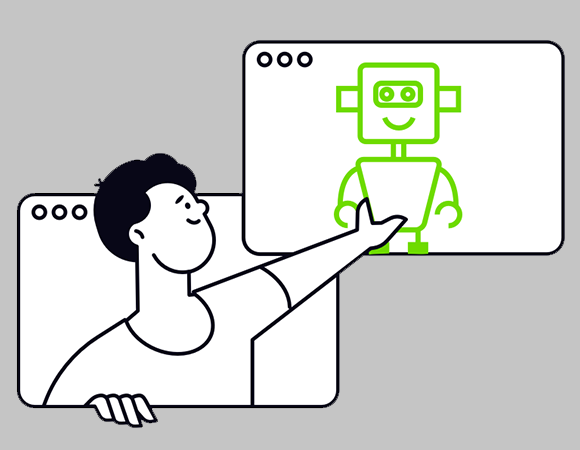Artificial intelligence is a big deal these days. ChatGPT launched in late 2022 and quickly became a global phenomenon. For many it has now made the leap from novelty to essential everyday tool.
It is of course far from alone in the AI marketplace. There’s Gemini and Runway and Midjourney and Github Copilot, to name just a few. The digital magic performed by these platforms can certainly be thought of as artificial intelligence.
It therefore stands to reason that every brand wants a piece of the AI pie. It’s new, it’s exciting, there’s a buzz around it. Although it has technological origins, the term AI has now become a powerful marketing label. But is it always accurate?
What is AI?
It’s hard to answer our question without first defining what artificial intelligence actually is. Let’s borrow Wikipedia’s description:
“Artificial intelligence (AI) refers to the capability of computational systems to perform tasks typically associated with human intelligence, such as learning, reasoning, problem-solving, perception, and decision-making.”
Given its prominence and versatility, let’s focus on ChatGPT. On the surface, it appears to tick some or maybe all of the boxes. It’s powered by a deep learning neural network. You can converse with it on a near-human level. It can discuss ideas and help you make decisions.
All that said, there is an illusory quality to our current AI technology. Platforms like ChatGPT don’t really understand anything. Not in the way a human brain does. They’re not self aware. They work via predictive patterns rather than actual intelligence.
This however does not disqualify them from being AI. It simply means that they are a form of narrow AI. The next level would be AGI – artificial general intelligence. We’re not there yet.
AI don’t think so
Hopefully we’ve agreed, more or less, what artificial intelligence is. The trouble is that some brands are a little too eager to jump on the bandwagon. Those two little letters – AI – now pop up all over the place.
And that very often means stretching the meaning of artificial intelligence to the point of silliness. Not every automated or vaguely algorithmic thing qualifies. Marketing departments want to attract attention, sure, but is exaggeration really a good tactic?
This practice is common enough that there’s a term for it: AI washing. To quote once again from Wikipedia:
“AI washing is a deceptive marketing tactic that consists of promoting a product or a service by overstating the role of artificial intelligence (AI) integration in it.”
We won’t point any fingers, but a quick Google search will reveal some real-world examples. Or, you know, you could ask ChatGPT about it.
Do you do AI?
There’s a general perception that AI automatically makes a product or service better. It’s a question that is now asked in the business world: “do you do AI?”.
Let’s assume for a moment that we are referring to actual artificial intelligence rather than some kind of relabelled automation technology such as customer workflows or rule-based product recommendations. Generative AI is a technology still in its infancy. The output is often garbage, or at the very least needs the refinement that only an intelligent human mind can perform.
It’s also a technology that requires enormous infrastructure and investment. That applies both to the training stage and day-to-day operation thereafter. This massive behind-the-scenes hardware setup can be easy to forget while casually asking ChatGPT what’s the best way to cook risotto.
With all this in mind, it’s worth taking the claim with a pinch of salt when Some Company Ltd claims to offer AI services. Have they really invested in the training of a new AI product? Or are they piggybacking on pre-trained AI models… or simply AI washing?
The big picture
AI has great potential. We’re just setting out on this technological chapter of human existence. How far it goes we can only imagine.
But for now, AI is best thought of as a factor, not the factor. It’s easy to get caught up in hype – I know I did when generative AI first appeared on the scene. But a dose of skepticism is healthy. AI is a tool, sometimes the right one – but it’s not a magic wand.


